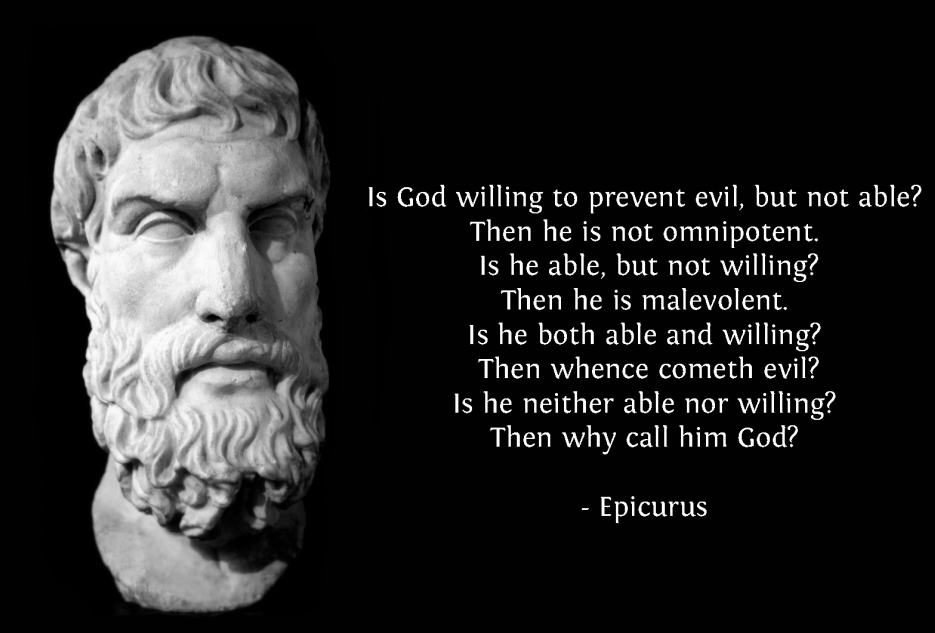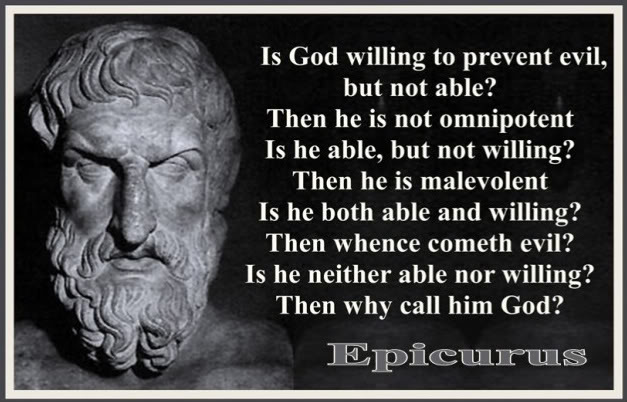The nitty-gritty of our struggle with the evil within is not resolved by abstract reasoning. It is faced every day in our decisions about how to treat family members, friends and acquaintances, business and work colleagues, schoolmates, strangers, and our planet. Most of these decisions are made casually, on automatic pilot so to speak. They are made in accordance with an (however unconsciously) internalized set of principles and criteria we have imbibed from our family of birth, our more extended community as we grow and mature, and the cultural influences we encounter and move in and through along our road to maturity.
Tag Archives: The problem of evil
When Evil Comes, 5 – Know Thyself
Socrates still makes people uncomfortable. The Oracle of Delphi named him the wisest man in the world. Asked why, Socrates replied that the only way that made any sense was because he understood that he really knew nothing. Knowing how little we know is the first step towards wisdom because it is the first step to teachability, correctability, and taking responsibility for finding out what we don’t know but pretend or delude ourselves that we do.
When Evil Comes, 2
Evil has a personal face, all the time. A natural process is not “evil” of itself, but can evil effects on the living creatures sometimes caught in its path. Since we do not control these processes, we call them “acts of God”.
But the Creator is not “evil” for creating a cosmos in which its elements and processes may bring pain and suffering on the beings inhabiting it. Those beings are also part of that cosmos, but the difference is that some of them are aware of how things proceed, what kinds of effects some actions can produce – both on themselves and on other creatures, and even on the non-living part of the cosmos. That is where the moral element enters.
When Evil Comes, 1
Humans are creatures which bridge the physical and non-physical sides of reality. Unfortunately for we Westerners (and, via our invasion of every other culture, everyone else now too), we have cultivated and inculcated a way of seeing (or, more accurately, not seeing) without reference to the unseen. In other words, we have deliberately forsaken Insight, the very human and precious ability to See In. Thus, we have crippled our humanity.
The Third Way, 40: Kohelet, 4 – Riches, Power, and Injustice
Solomon-Kohelet does not defend the Creator, even though he continually acknowledges Him/Her. Instead, he observes (very dispassionately, like a modern social scientist) the world as it is with all its apparently random outcomes. The “good and just” sometimes suffer evil and calamity in the same way as fools and criminals; the unjust and wicked too often seem to live easy, fat, comfortable lives while the innocent, the good, and the just suffer. He never facilely resorts to blaming God for this state of affairs, nor does he ever mention a ‘devil’, a demon, or any other supernatural entity as an instigator; such things just are. But he still has something to say as to why they are as they are, and his insights are right on target to this day.




